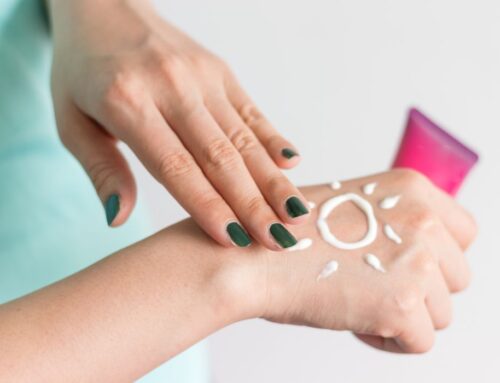Comprehensive Guide To Treating Acne: Tips and Tricks from a Dermatologist
Acne is a skin condition that affects millions of people worldwide. It is characterized by the appearance of pimples, blackheads, whiteheads, and sometimes painful cysts on the face, neck, chest, and back. Acne can have a significant impact on a person’s self-esteem and confidence, especially during adolescence when social pressures are high. In this article, we will provide a comprehensive guide to treating acne, with tips and tricks from a dermatologist.
What Causes Acne?
Acne occurs when the hair follicles in the skin become clogged with oil and dead skin cells. This creates an environment for bacteria to thrive, leading to inflammation, redness, and swelling. Acne can be caused by a variety of factors, including hormonal changes, stress, genetics, and diet.
Treatment Options for Acne
There are several treatment options available for acne, ranging from over-the-counter products to prescription medications. The most effective treatment will depend on the severity and type of acne.
Over-the-Counter Products
Over-the-counter (OTC) products are the first line of defense for mild acne. These products typically contain ingredients such as benzoyl peroxide, salicylic acid, or alpha-hydroxy acids, which help to unclog pores and reduce inflammation.
Benzoyl peroxide is an antimicrobial agent that can kill the bacteria that cause acne. It is available in creams, gels, and washes and can be found in strengths ranging from 2.5% to 10%. It is essential to start with a lower strength to prevent irritation and dryness, which can worsen acne.
Salicylic acid is a beta-hydroxy acid that helps to unclog pores by exfoliating dead skin cells. It is available in products such as cleansers, toners, and spot treatments and is generally well-tolerated.
Prescription Medications
For moderate to severe acne, prescription medications may be necessary. These medications can be topical or oral and are typically prescribed by a dermatologist.
Topical medications include retinoids, which are derived from vitamin A and work by unclogging pores and reducing inflammation. They are available in various strengths and formulations, such as gels, creams, and solutions.
Oral medications include antibiotics, which can reduce inflammation and kill bacteria, and hormonal medications, such as birth control pills or spironolactone, which can help to regulate hormones that contribute to acne.
In-office Treatments
In addition to topical and oral medications, in-office treatments are also available for acne. These treatments are typically performed by a dermatologist and can include:
Chemical peels: Chemical peels involve the application of a solution to the skin to exfoliate dead skin cells and unclog pores.
Microdermabrasion: Microdermabrasion involves the use of a machine to exfoliate the skin and unclog pores.
Light therapy: Light therapy involves the use of various wavelengths of light to reduce inflammation and kill bacteria.
Tips and Tricks for Treating Acne
In addition to the above treatment options, there are several tips and tricks that can help to prevent and treat acne.
Keep the Skin Clean
Keeping the skin clean is essential for preventing and treating acne. Use a gentle cleanser twice a day to remove dirt, oil, and makeup from the skin. Avoid scrubbing the skin too harshly, as this can irritate acne and make it worse.
Don’t Pick or Pop Pimples
Picking or popping pimples can cause further inflammation and scarring. It is best to leave them alone and let them heal naturally.
Moisturize the Skin
Moisturizing the skin is essential, even for acne-prone skin. Look for non-comedogenic moisturizers, which will not clog pores, and avoid heavy or greasy products.
Wear Sunscreen
Wearing sunscreen is crucial for protecting the skin from sun damage, which can worsen acne and cause scarring. Look for a non-comedogenic sunscreen with an SPF of at least 30.
Manage Stress
Stress can trigger hormonal changes that contribute to acne. Practicing stress-management techniques such as exercise, meditation, or yoga can help to reduce stress levels and improve acne.
Adjust Diet
While there is no specific diet that can cure acne, certain foods can trigger or worsen acne in some people. Avoiding dairy, sugar, and high-glycemic-index foods may help to improve acne in some individuals.
Be Patient
Treating acne takes time and patience. It can take several weeks or months for acne to improve with treatment, so it is important to be consistent and patient.
Conclusion
Acne is a common skin condition that can have a significant impact on a person’s self-esteem and confidence. There are several treatment options available, including over-the-counter products, prescription medications, and in-office treatments. In addition, there are several tips and tricks that can help to prevent and treat acne, such as keeping the skin clean, moisturizing the skin, wearing sunscreen, managing stress, adjusting the diet, and being patient. If acne is severe or persistent, it is important to seek the advice of a dermatologist, who can provide customized treatment options and guidance.

